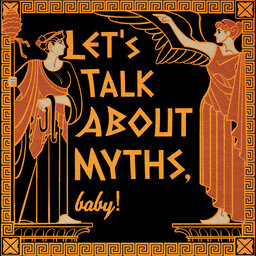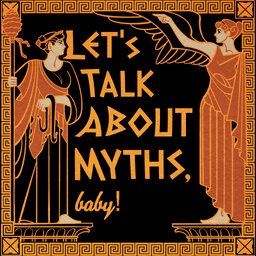Conversations: The Horrors Persist! Disability in the Ancient Roman World
Liv speaks with PhD student Cecily Bateman about their research in disability in the ancient world (spoilers: it's as horrifying as it is fascinating).
CW/TW: far too many Greek myths involve assault. Given it's fiction, and typically involves gods and/or monsters, I'm not as deferential as I would be were I referencing the real thing.
Attributions and licensing information for music used in the podcast can be found here: mythsbaby.com/sources-attributions.
Let's Talk About Myths, Baby! Greek & Roman Mythology Retold
The most entertaining and enraging stories from Greek mythology and the wider Ancient Mediterranean …Social links
Follow podcast
Recent clips

AHFG Book Club: Jenny Williamson's Enemy of My Dreams
1:16:02

RE-AIR: Conversations: A Long and Storied History of Sparta, Modern Misuse & Misconception w/ Stephen Hodkinson
1:40:25

Hermes Historia: Giorgos the Oikist, Colonization in Greek Antiquity
42:43
 Let's Talk About Myths, Baby! Greek & Roman Mythology Retold
Let's Talk About Myths, Baby! Greek & Roman Mythology Retold